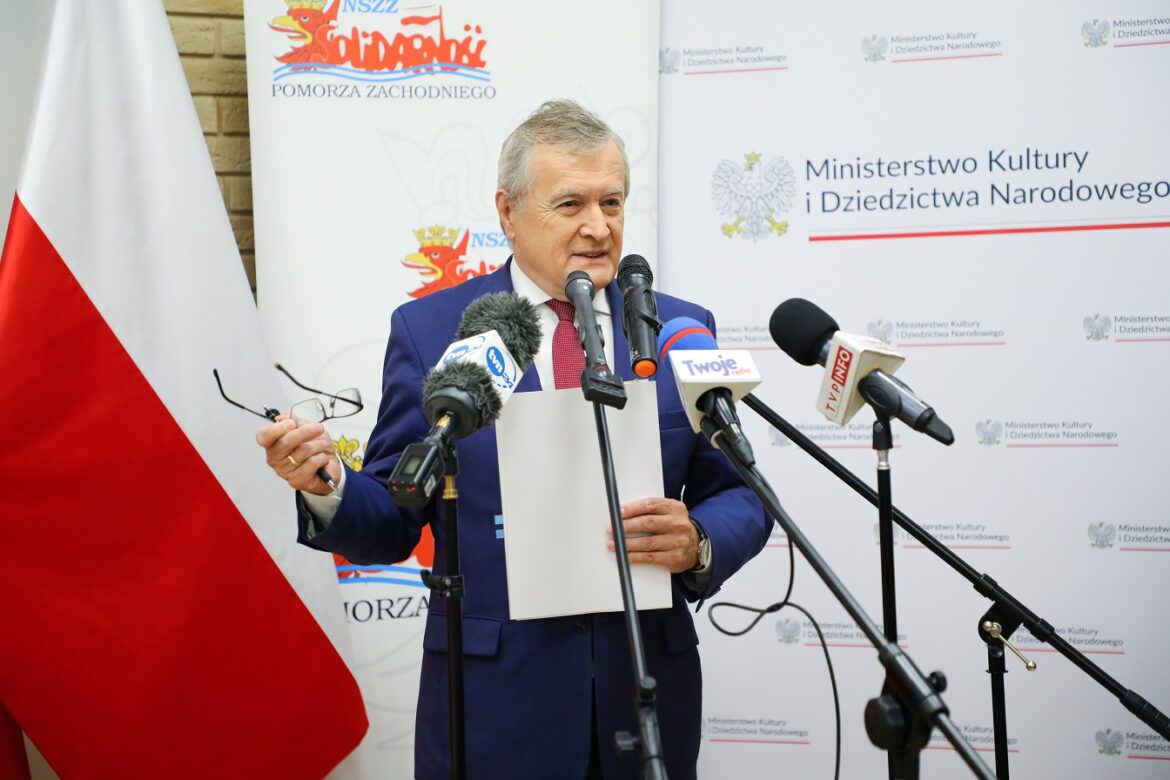In Szczecin, in the shipyard common room where the Szczecin Accords were signed 43 years ago, a new state cultural institution – the Solidarity Centre “Shipyard” (CSS)- is beginning its activities. The new cultural institution will focus on preserving the legacy of Solidarity as a social movement and as a trade union.
“The Szczecin Agreements, the first agreements in Poland between the then authorities and the then emerging trade union “Solidarność” (Solidarity), were a source of change for Poland and our whole region of Europe” said Minister of Culture and National Heritage Piotr Gliński during a ceremony to launch the new state cultural institution.
The most important objectives of the Centre’s activities will be to commemorate and promote in Poland and abroad the historical heritage of the NSZZ Solidarność trade union, the social movement and the anti-communist democratic opposition in Poland, with particular emphasis on the events of December 1970, January 1971 and the Szczecin Agreements of 30 August 1980 and strikes of 1988.
CSS will also deal with the commemoration of Polish society’s resistance to the communist system from 1945 to 1989, with particular emphasis on the Western and Northern Territories, and the commemoration of the activities and history of the Szczecin Shipyard and the shipbuilding industry in Szczecin.
The tasks of the new centre also include collecting and displaying materials on the formation of Poland’s western border after World War II and the period of building up social and economic life in the Western and Northern Lands, as well as initiating cultural, social, and scientific projects relating to the cultural heritage of the Western and Northern Lands, with particular emphasis on Szczecin and Western Pomerania.
The Centre is based in the former Adolf Warski Shipyard common room building, the site of the Szczecin Agreements of 1980.
Arkadiusz Słomczyński





